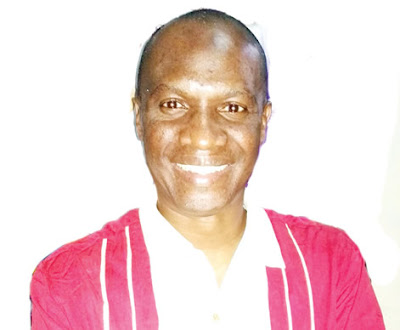I'm still living with a live tracking device - Kunle Ajomale
As gospel artiste, Kunle Ajomale prepares for the 30th anniversary of his music career, he speaks with Chux Ohai on his experience.
Popular gospel musician, Evangelist Kunle Ajomale, has said that he is still living with a live tracking device, a microchip the size of a tiny strand of human hair which he accused officials of the United States Immigration and Customs Enforcement of forcefully implanting in his body in 2010.
"I am still carrying the microchip in my body. Some Indian doctors have detected it and told me that it is still in my system," the musician said, in an interview with our correspondent.
Complaining of persistent headache, tiredness and constant pain as a result of the chip’s presence in his body, the singer said that he had engaged the services of about 11 Nigerian doctors since he returned to the Nigeria, but none of them could detect the chip for want of the necessary facility. When the Indians arrived, he noted, they showed him the exact spot in the body where the chip was implanted.
Despite his effort to draw the attention of the US authority to his predicament and the violation of his fundamental human right by the USICE, he lamented, the country had done nothing about the issue.
"The Americans have refused to deal with the matter or talk about it. One thing I know is that the truth cannot die. One day, the truth will be revealed and what those people did to me will be exposed," he said, expressing the wish that someday the Federal Government would listen to him and boldly demand that the US do the needful.
However, nudging the matter aside, Ajomale decided to focus on the celebration of the 30th anniversary of his music career, scheduled to hold on August 27, 2017 in Lagos.
He said, "I would say that my career as a gospel music artiste started in 1994, but I have been in music since 1987. I recorded my first album Erinwo (translated in English, it means ‘an elephant has fallen’) in the same year. I dedicated the album to Chief Obafemi Awolowo. It was, in fact, a tribute to him, especially for recognizing and appreciating my talent when I was in the university.
"The album won an award and the title song was also broadcast on radio during Awolowo’s funeral. I felt very proud listening to my own work on the radio. I was playing high life music in those days."
As a youth corps member serving in the then Bendel State, Ajomale waxed an album, which went on to win an award and thus encouraged him to delve into music full-time. But, the general reception for the album was so poor and disappointing that it temporarily dampened his spirit. As a result, he did not make music for about seven years. When he finally recovered from the shock, he decided to dump secular music for the gospel variety.
The first thing he did was to record another album, which he titled The Comforter. The album, he recalled, was so titled in a moment of ‘remorse’ for derailing from the path of the gospel into secular music, in the first place.
"At that point, I felt that God had decided to comfort me for the losses suffered in the previous seven years," he said.
Comparing gospel music with the secular genre, in terms of the financial benefits, the singer said the latter was more lucrative, just as the benefit of playing in a church is divine and endless. "With gospel music, the reward you get is divine. It comes from God, not man. In the first place, I don’t even charge churches. I have never in my life charged money to perform in a church," he said.
Although he did not plan at any time to travel to the United States, he nevertheless found himself there, courtesy of an invitation from some Nigerians living in that country to perform one of his hit-songs, titled Lehin Jesu, live. He ended up touring 33 out of the 50 states in the US.
In spite of his success and popularity as a gospel musician, the singer said he had no aversion to secular music. He still enjoys playing at parties where he is often required to sing the praises of the hosts or their affluent guests and allow himself to be sprayed with cash.
Looking back at those years when he had to go through thick and thin to establish himself as a gospel musician, he said, "God has been very kind to me. I have no regret being in gospel music."
Source: Newsedge.com.ng




Comments
Post a Comment